Bihar – The Bihar SIR exercise reaches a crucial milestone with Chief Election Commissioner Gyanesh Kumar providing detailed assurance to voters regarding the draft electoral roll publication process. This comprehensive Bihar SIR initiative represents one of the most significant electoral reforms undertaken in recent years, affecting millions of voters across the state.
The CEC’s message to Bihar voters emphasizes transparency and inclusivity in the Bihar SIR process, ensuring that all stakeholders have adequate opportunities to participate in refining the electoral rolls. This systematic approach demonstrates the Election Commission’s commitment to conducting fair and comprehensive voter registration exercises.
Draft Publication Timeline and Accessibility
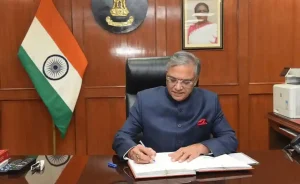
The Bihar SIR draft electoral rolls are scheduled for publication on Friday, August 1, making them accessible through the official portal at https://voters.eci.gov.in/download. This digital accessibility ensures widespread reach and transparency in the Bihar SIR process, allowing voters to verify their registration status immediately upon publication.
Chief Election Commissioner Kumar emphasized that both physical and digital copies will be distributed to all recognized political parties across Bihar’s 38 districts. The Bihar SIR framework ensures that District Election Officers in each district will personally oversee this distribution process, maintaining accountability at every administrative level.
This dual-format approach reflects the Election Commission’s understanding of varying technological access across different regions, ensuring that the Bihar SIR process remains inclusive and accessible to all political stakeholders regardless of their digital capabilities.
Claims and Objections Framework
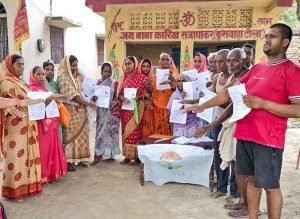

The Bihar SIR process includes a comprehensive one-month window from August 1 to September 1 for claims and objections. During this critical period, the Chief Electoral Officer of Bihar and 243 Electoral Registration Officers will actively invite electors and recognized political parties to submit their feedback regarding the draft rolls.
This structured approach to the Bihar SIR claims process allows for systematic review of additions, deletions, and corrections to electoral entries. The month-long duration provides adequate time for thorough examination of the draft rolls while maintaining momentum toward the final publication deadline.
The inclusive nature of the Bihar SIR claims process ensures that both individual voters and political organizations can participate equally in refining the electoral database. This democratic approach strengthens the overall integrity of the voter registration system.
Participation Statistics and Impact Assessment
The Bihar SIR exercise has witnessed remarkable participation levels, with 91.69% of registered electors submitting enumeration forms. Out of 7.89 crore electors as of June 24, 2025, over 7.24 crore individuals participated in the Bihar SIR enumeration process, demonstrating overwhelming public engagement with electoral reforms.
Also Read: Rahul Gandhi On Indian Economy: Shocking Endorsement of Trump’s “Dead Economy” Claims
However, this high participation rate in the Bihar SIR process also means that approximately 65 lakh voters will not appear in the August 1 draft roll. The Election Commission has provided clear explanations for these exclusions, citing death, permanent relocation, and multiple enrollment issues as primary reasons.
The Bihar SIR statistics reveal the complexity of maintaining accurate electoral databases in a dynamic demographic environment. These figures underscore the necessity of regular comprehensive reviews to ensure electoral roll accuracy and prevent voter disenfranchisement.
Youth Voter Enrollment Initiatives
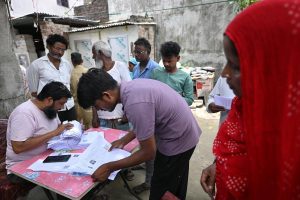

A significant component of the Bihar SIR process focuses on engaging young voters who have recently attained or will soon attain voting age. The Election Commission has specifically targeted individuals who turned 18 on July 1, 2025, or will reach this milestone by October 1, 2025.
The Bihar SIR youth enrollment campaign encourages eligible young citizens to submit Form 6 applications along with prescribed declaration forms. This proactive approach ensures that demographic transitions are properly reflected in the electoral database without compromising the integrity of the Bihar SIR process.
Special campaigns scheduled from August 1 to September 1 will specifically target youth enrollment, ensuring that the Bihar SIR exercise contributes to expanding democratic participation rather than restricting it. These campaigns represent a crucial investment in the future of democratic engagement in Bihar.
Administrative Structure and Implementation
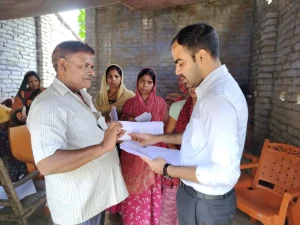

The Bihar SIR implementation involves a sophisticated administrative hierarchy spanning 38 districts with dedicated District Election Officers overseeing local processes. This decentralized approach ensures that the Bihar SIR exercise maintains consistency while adapting to local conditions and requirements.
The involvement of 243 Electoral Registration Officers in the Bihar SIR process creates multiple access points for voter interaction, reducing administrative bottlenecks and improving service delivery. This extensive human resource deployment demonstrates the Election Commission’s commitment to thorough implementation.
Legal Challenges and Political Responses
The SIR exercise has faced legal scrutiny, with challenges filed in the Supreme Court questioning various aspects of the process. Opposition parties have characterized the initiative as a backdoor attempt to implement a National Register of Citizens, raising concerns about potential voter disenfranchisement.
Despite these challenges, the SIR process continues under judicial oversight, with the Election Commission maintaining its commitment to transparency and inclusivity. The ongoing legal proceedings highlight the significance of this electoral reform initiative.
Timeline and Final Implementation
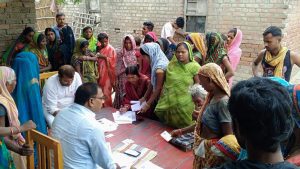

The SIR process, which began on June 24, aims to publish final electoral rolls by September 30. This timeline provides adequate opportunity for comprehensive review while maintaining momentum toward completion.
The SIR model may serve as a template for similar exercises in other states, making its successful implementation crucial for future electoral reforms nationwide. The process represents a significant step toward modernizing India’s electoral infrastructure.

